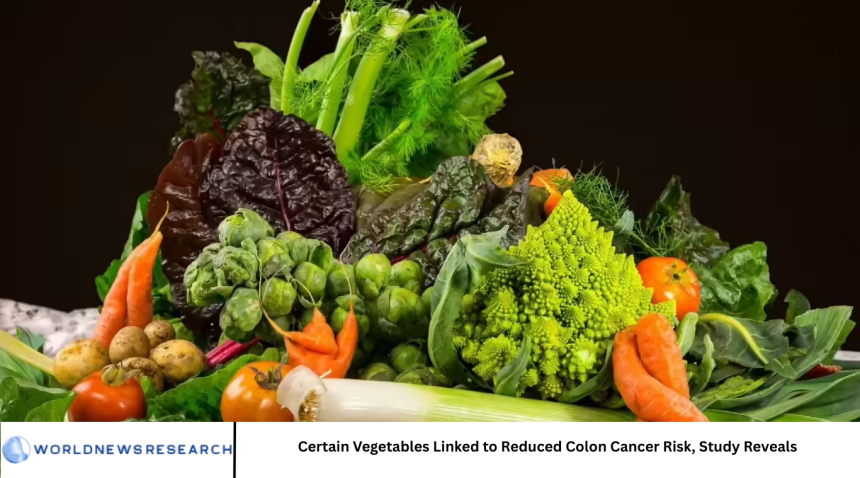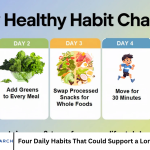Colon cancer remains one of the leading causes of cancer-related deaths globally. Fortunately, growing scientific evidence points to the power of diet—specifically, the consumption of certain vegetables—in reducing the risk. A landmark meta-analysis has found that regularly consuming cruciferous vegetables like broccoli, cabbage, and kale can lower colon cancer risk by up to 20–26%. This article delves into the research, explains the mechanisms behind these benefits, and provides practical guidance on incorporating these foods into daily life.
The Research Findings: How Strong Is the Evidence?
A major systematic review and meta-analysis examined 17 studies involving over 639,000 individuals, nearly 98,000 of whom developed colon cancer. It found that those who consumed the most cruciferous vegetables daily had around a 20–26% lower risk compared to those with the lowest intake. The biggest protective benefits occurred at 20–40 grams per day, roughly equivalent to half a cup of chopped broccoli—with benefits plateauing beyond 40–60 grams per day. This finding represents one of the most robust dietary associations with colon cancer prevention to date.
Why These Vegetables? The Science Behind the Protection
Cruciferous vegetables contain compounds known as glucosinolates, which convert during digestion into potent biologically active substances called isothiocyanates (like sulforaphane) and indoles. These compounds are believed to:
- Support detoxification of harmful carcinogens
- Promote apoptosis (programmed death) of cancer cells
- Inhibit tumor blood vessel formation
- Reduce inflammation
- Enhance DNA repair mechanisms
These effects operate both directly on cancer-prone cells and indirectly through gut health. PreventionLippincott Journals
Beyond Cruciferous: The Role of Other Vegetables and Plant Foods
While cruciferous vegetables are especially protective, other plant-based foods also contribute to lower colon cancer risk:
- Leafy greens and folate-rich vegetables (like spinach, cabbage): Folate supports DNA repair and has been linked to modest risk reductions. Imperial College London
- Allium vegetables (such as garlic): Early research suggests potential protective effects against certain digestive cancers. arXiv
- General plant-based diets: Meta-analyses show that diets rich in fruits, vegetables, whole grains, legumes, nuts, and soy may reduce digestive cancer risks by upwards of 20–25%. Reddit
However, not all research is absolutely conclusive—some large cohort studies report less dramatic associations, though the overall trend favors vegetable-rich diets. HealthDayAmerican Journal of Clinical Nutrition
How Much Is Enough? Daily Intake Recommendations
Based on current findings:
- Cruciferous vegetables: Aim for 20–40 grams daily (around ½ cup of chopped broccoli). Benefits maximize up to 40–60 grams, beyond which they plateau. MedscapeYour NewsMedical News Today
- Broader vegetable intake: More is typically better—at least 5–7 servings per day, focusing on variety, color, and nutritional density.
Consistent, moderate consumption over time appears more important than occasional large servings.
Lifestyle Context: Diet Is One Piece of the Puzzle
Diet alone won’t guarantee cancer prevention—but combined with other healthy habits, it can substantially lower risk. Key co-factors include:
- Reducing red and processed meat intake
- Limiting alcohol and avoiding smoking
- Maintaining a healthy weight and staying active
- Regular screenings, especially from age 45–50
Some studies suggest that plant-based antioxidants and fiber may help neutralize the harmful effects of other dietary risk factors. The Times of India
Practical Tips for Incorporating These Vegetables
Here are simple ways to incorporate more cruciferous and leafy greens:
- Blend kale or collard greens into smoothies or soups
- Steam or roast broccoli, Brussels sprouts, or cauliflower as side dishes
- Mix shredded cabbage or bok choy into stir-fries and salads
- Add fresh mustard greens or bok choy into noodle soups
- Rotate these vegetables seasonally and use them to replace less-effective options like lettuce or iceberg
Small consistent changes are key.
Caveats and Remaining Questions
- Causation vs. Correlation: Most studies are observational, making definitive proof challenging. Still, the biological plausibility supports dietary recommendations. Health
- Genetic and sex differences: Some data suggest benefits vary by demographic group, highlighting the need for personalized health strategies. American Journal of Clinical NutritionBioMed Central
- Diet quality matters: Some less-nutritious vegetables (like iceberg lettuce) provide minimal benefit, while others may offer robust protection. Reddit
Ongoing research aims to sharpen guidelines and understand individual responses.
Frequently Asked Questions
Which vegetables are linked to lower colon cancer risk?
Cruciferous vegetables such as broccoli, cabbage, cauliflower, Brussels sprouts, kale, bok choy, and collard greens.
How much should I eat daily for protective effects?
Aim for 20–40 grams per day (about ½ cup), with benefits plateauing between 40–60 grams.
Why are these vegetables particularly protective?
They contain glucosinolates that convert into compounds like sulforaphane, which support detoxification, reduce inflammation, and block cancer growth.
Do other vegetables help too?
Yes—leafy greens, allium vegetables (like garlic), and a broad plant-rich diet also provide benefits, though cruciferous vegetables offer the strongest data.
Can diet completely prevent colon cancer?
No single factor can. Diet is one important component, but regular screening, active living, and healthy weight are also key.
Are plant-based diets always protective?
Generally, yes—many studies show reduced digestive cancer risk with plant-based diets. Still, results vary depending on diet quality and demographic factors.
What else can I do to lower my risk?
Cut down red/processed meat, alcohol, and smoking; stay active; maintain healthy weight; and follow screening guidelines.
Conclusion
This body of evidence offers a compelling message: Eating cruciferous vegetables regularly—just half a cup per day—can reduce colon cancer risk by 20–26%. To maximize benefits, pair this habit with a wide array of plant-based foods, an active lifestyle, and appropriate medical screening. Simple dietary shifts can yield powerful preventive impact.






